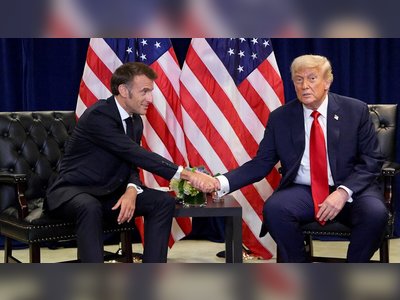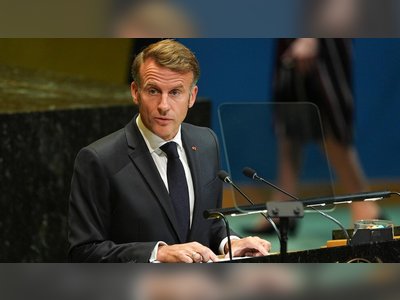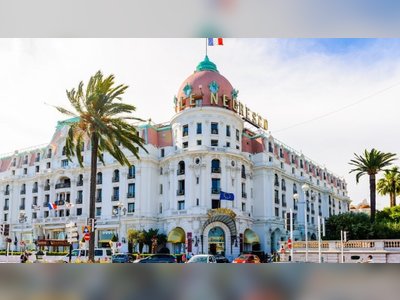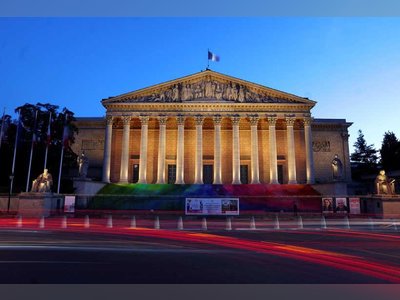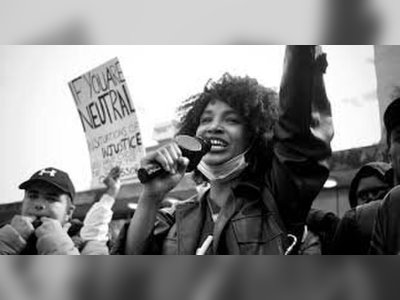Shock in France: 5 Years in Prison for Former President Nicolas Sarkozy
A Paris court sentenced former French President Nicolas Sarkozy to five years in prison for conspiracy to commit a crime linked to alleged Libyan funding for his 2007 campaign, a harsher sentence than expected and one he vows to appeal.
A court in France has sentenced former President Nicolas Sarkozy to five years in prison after convicting him of conspiracy to commit a crime, linked to attempts by his close aides to secure funding from Libya for his 2007 presidential campaign under dictator Muammar Gaddafi.
The verdict, delivered on Thursday afternoon, was far harsher than many expected and stunned the French public.
The court acquitted Sarkozy of corruption and illegal campaign financing but ruled that he was guilty of the conspiracy charge, which carries significant weight on its own.
He will serve time in prison even if he appeals.
Sarkozy arrived in court with his wife, singer and model Carla Bruni.
The seventy-year-old Sarkozy has denied the allegations throughout, calling the case political.
He was accused of forging an arrangement with Gaddafi while serving as France’s interior minister in 2005, under which Libya would secretly fund his campaign in return for French support on the international stage.
Sarkozy went on to win the 2007 election and served as president until 2012, when he lost to Socialist candidate François Hollande.
The presiding judge noted there was no proof Sarkozy himself negotiated the deal with Gaddafi or that Libyan money reached his campaign coffers, although timelines aligned and the flow of funds remained “highly opaque”.
Still, the court found him guilty of conspiracy between 2005 and 2007 for allowing his close advisers to pursue funding with Libyan contacts.
Sarkozy’s former right-hand man Claude Guéant and ex-interior minister Brice Hortefeux were also convicted.
The court said the timing of Sarkozy’s imprisonment will be determined later, sparing him immediate transfer from the courtroom to prison.
Carla Bruni and Sarkozy’s three adult sons attended the hearing.
After the ruling, Sarkozy told reporters the decision was a “scandal” and pledged to appeal.
“What happened today is extremely serious for the rule of law in France,” he said.
“If they want me to sleep in prison, I will sleep in prison, but with my head held high”.
He insisted on his innocence and vowed to fight until the end.
Sarkozy has faced multiple legal battles since leaving office.
Last year, a court upheld his conviction in a separate corruption case, requiring him to wear an electronic tag for one year—the first such measure imposed on a former French president.
In another case, a court confirmed his conviction for illegal financing of his 2012 campaign, which exceeded legal limits nearly twofold.
He was sentenced to one year, including six months suspended, and has appealed, with a Supreme Court ruling expected next month.
The case against Sarkozy has long been marked by claims of political persecution and fabricated evidence.
It originated in 2011 after Gaddafi and Libyan state media alleged Libya had secretly funded Sarkozy’s 2007 campaign.
In 2012, a French investigative outlet published what it said was a Libyan intelligence document outlining a fifty-million-euro funding deal.
Sarkozy said the document was forged and sued for defamation.
The court now accepts that the document was likely fabricated.
He has argued the allegations were Libyan revenge for his role in 2011, as president, in calling for Gaddafi’s overthrow and supporting foreign military intervention during the Arab Spring, which ended with Gaddafi’s death.
Investigators also examined several visits by Sarkozy’s aides to Libya during his tenure as interior minister.
In 2016, Franco-Lebanese businessman Ziad Takieddine claimed he personally carried suitcases of cash from Tripoli to Sarkozy’s ministry.
He later retracted the claim, a reversal now at the center of a separate investigation into evidence tampering.
Sarkozy and Bruni face preliminary charges of attempting to pressure Takieddine.
Takieddine fled to Lebanon in 2020 and died in Beirut this week at the age of seventy-five.
Despite his legal troubles, and the loss of France’s highest honor, the Legion of Honour, after a prior conviction, Sarkozy remains influential in French politics.
He recently met with Prime Minister Sébastien Lecornu, once his protégé, and has bolstered Marine Le Pen’s National Rally by declaring the party—long viewed as far-right and anti-immigration—to be part of the “republican arc,” meaning the spectrum of legitimate right-wing parties in France.
The verdict, delivered on Thursday afternoon, was far harsher than many expected and stunned the French public.
The court acquitted Sarkozy of corruption and illegal campaign financing but ruled that he was guilty of the conspiracy charge, which carries significant weight on its own.
He will serve time in prison even if he appeals.
Sarkozy arrived in court with his wife, singer and model Carla Bruni.
The seventy-year-old Sarkozy has denied the allegations throughout, calling the case political.
He was accused of forging an arrangement with Gaddafi while serving as France’s interior minister in 2005, under which Libya would secretly fund his campaign in return for French support on the international stage.
Sarkozy went on to win the 2007 election and served as president until 2012, when he lost to Socialist candidate François Hollande.
The presiding judge noted there was no proof Sarkozy himself negotiated the deal with Gaddafi or that Libyan money reached his campaign coffers, although timelines aligned and the flow of funds remained “highly opaque”.
Still, the court found him guilty of conspiracy between 2005 and 2007 for allowing his close advisers to pursue funding with Libyan contacts.
Sarkozy’s former right-hand man Claude Guéant and ex-interior minister Brice Hortefeux were also convicted.
The court said the timing of Sarkozy’s imprisonment will be determined later, sparing him immediate transfer from the courtroom to prison.
Carla Bruni and Sarkozy’s three adult sons attended the hearing.
After the ruling, Sarkozy told reporters the decision was a “scandal” and pledged to appeal.
“What happened today is extremely serious for the rule of law in France,” he said.
“If they want me to sleep in prison, I will sleep in prison, but with my head held high”.
He insisted on his innocence and vowed to fight until the end.
Sarkozy has faced multiple legal battles since leaving office.
Last year, a court upheld his conviction in a separate corruption case, requiring him to wear an electronic tag for one year—the first such measure imposed on a former French president.
In another case, a court confirmed his conviction for illegal financing of his 2012 campaign, which exceeded legal limits nearly twofold.
He was sentenced to one year, including six months suspended, and has appealed, with a Supreme Court ruling expected next month.
The case against Sarkozy has long been marked by claims of political persecution and fabricated evidence.
It originated in 2011 after Gaddafi and Libyan state media alleged Libya had secretly funded Sarkozy’s 2007 campaign.
In 2012, a French investigative outlet published what it said was a Libyan intelligence document outlining a fifty-million-euro funding deal.
Sarkozy said the document was forged and sued for defamation.
The court now accepts that the document was likely fabricated.
He has argued the allegations were Libyan revenge for his role in 2011, as president, in calling for Gaddafi’s overthrow and supporting foreign military intervention during the Arab Spring, which ended with Gaddafi’s death.
Investigators also examined several visits by Sarkozy’s aides to Libya during his tenure as interior minister.
In 2016, Franco-Lebanese businessman Ziad Takieddine claimed he personally carried suitcases of cash from Tripoli to Sarkozy’s ministry.
He later retracted the claim, a reversal now at the center of a separate investigation into evidence tampering.
Sarkozy and Bruni face preliminary charges of attempting to pressure Takieddine.
Takieddine fled to Lebanon in 2020 and died in Beirut this week at the age of seventy-five.
Despite his legal troubles, and the loss of France’s highest honor, the Legion of Honour, after a prior conviction, Sarkozy remains influential in French politics.
He recently met with Prime Minister Sébastien Lecornu, once his protégé, and has bolstered Marine Le Pen’s National Rally by declaring the party—long viewed as far-right and anti-immigration—to be part of the “republican arc,” meaning the spectrum of legitimate right-wing parties in France.



